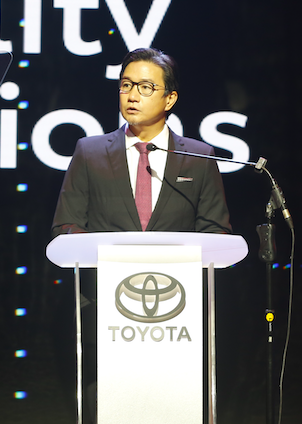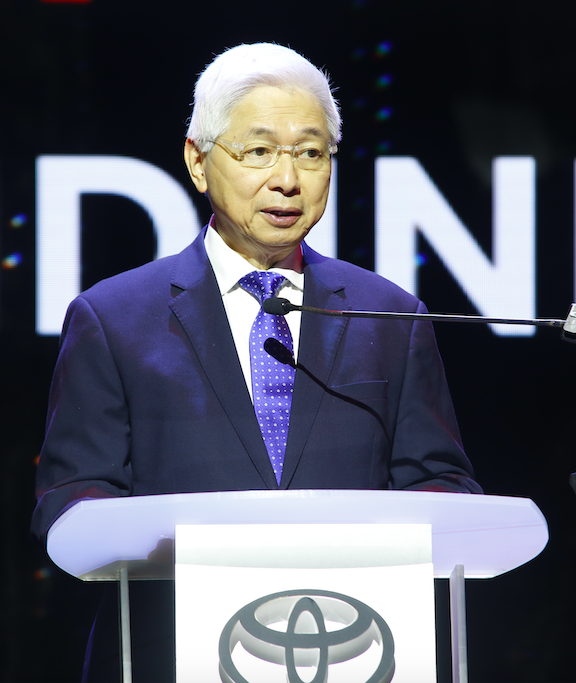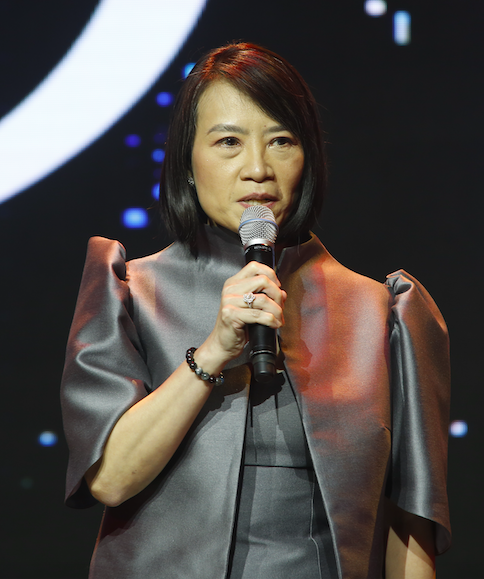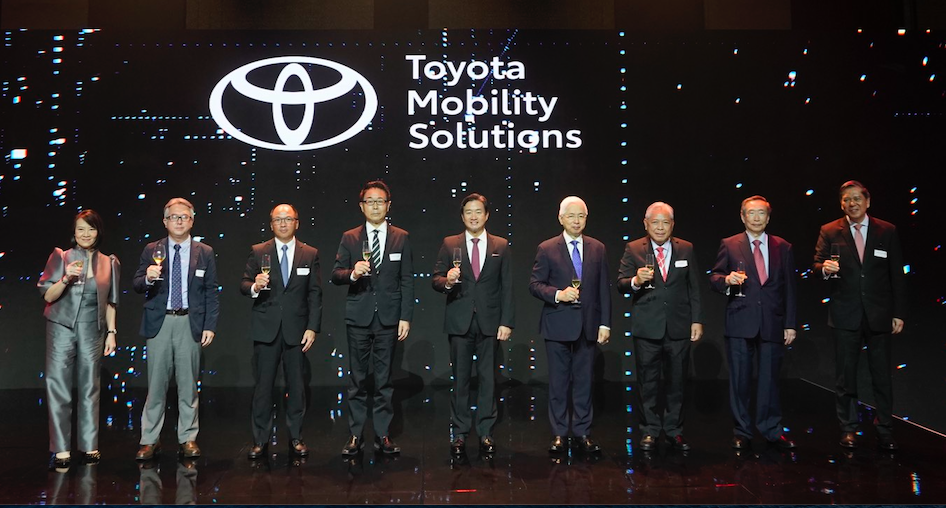Auto giant Toyota Motor PH shows innovative agility by creating mobility solutions company
The traditional way of thinking about car manufacturers was that when you need to buy your own car, you go to them and their dealerships.
Times have changed, though. Maybe it’s the pandemic, or a burgeoning global population. Perhaps, it’s another consequence of climate change, or a function of intertwining supplies and demands, or the impact of emerging economies and technologies. Maybe it’s a little bit of everything. Transportation has acquired so many facets, carmakers have evolved into different entities altogether. There are those that offer trade-ins. Others hype leasing options, or fleet management, or rentals. Most of them “mix-and-match” these services to get you moving as efficiently as possible in their vehicles.
Being the leading global automotive car company, Toyota obviously had seen this coming ahead of everyone else. In December 2019, Akio Toyoda, the president of Toyota Motor Corporation, during his speech titled “Reforming our company to become a ‘Mobility Company,’” observed that, “in light of technological innovations in ‘CASE’ (new areas called ‘Connected’, ‘Autonomous/Automated’, ‘Shared’, and ‘Electric’), the very concept of the automobile is on the verge of a major change. We must transform our business model into one that is in line with the CASE era.”
He went on: “Rather than focus solely on passenger cars and individual customers, we can spread these technologies via commercial vehicles and vehicles for government offices and fleet customers. Rather than conduct development on our own, without friends and partners, we can partner and collaborate with others who share our aspirations. Rather than keep our patents to ourselves, we can open them up and create more new friends. Rather than sell only cars, we can provide various services in which vehicles are incorporated into a system and focus more broadly and openly on contributing to the improvement of society. We will strive to adopt a broad, community-level and society-level perspective that includes cars, which in essence is the concept of the ‘connected city.’”
Perhaps inspired by Toyoda’s vision of a “connected city,” Toyota Motor Philippines officially launched its wholly owned subsidiary Toyota Mobility Solutions Philippines (TMSPH) last Aug. 12 at the Grand Hyatt in Taguig City. The first big step towards the realization of that vision is by providing solutions across the entire mobility spectrum.




True to Toyoda’s dream of nurturing “new friends and partners,” TMP and its automotive manufacturing and distribution businesses further their efforts to provide safety and comfort for Filipinos with TMSPH’s Vehicle Usership (VU) platforms, available for individuals and the business sector. During the launch, TMP president Atsuhiro Okamoto said that this new venture would “better shape the industry’s role in building our modern societies and enriching human lives. We will accelerate the fulfillment of Toyota’s global mission to ‘Produce Happiness for All’ and vision to create ‘Mobility for All,” he added.
TMSPH President Ma. Cristina Fe Arevalo defined TMP’s concept of ‘new mobility’ as a suite of technology and data-driven lifestyle and business solutions that can address the day-to-day challenges of moving people and goods from one point to another. “We envision TMSPH to be at the center of the ‘new mobility’ ecosystem as an integrated, ‘one-stop’ mobility solutions provider to help advance businesses and address local communities’ needs,” she explained.
Arevalo highlighted that TMSPH will primarily support the operating efficiency and growth of micro, small and medium-sized enterprises or MSMEs of various industries which are vital in driving economic growth.
TMSPH presented an initial pipeline of services which include fleet-connected service, on-demand shuttle booking app, car sharing or rental, logistics matching service, and fleet management service. Additionally, TMSPH will complement Toyota Financial Services Philippines Corp (TFSPH) to promote and manage units under its full operating lease product called Kinto.
First of its kind
The first of its kind among Toyota affiliates in the Southeast Asian region, TMSPH is considered a “New Mobility Dojo” projected to modernize domestic mobility systems and the internet of things (IoT), potentially creating employment opportunities for technical but customer-centric professionals.
In an interview with Road Talk, Arevalo said: “I’m honored to be chosen as TMSPH president. This is a new and big challenge for me and my team, but we are optimistic that with the strong support of TMP, TFSPH, and the Toyota dealer network, we will be able to achieve our targets. My immediate plan centers on building capabilities and strengthening our team as the foundation for achieving our mid-term targets.” Arevalo described TMSPH as “offering solutions in the form of applications or systems that can address day-to-day transport inefficiencies for both people and goods.”
She added, “At the initial phase of our operations, our services are available to business enterprises, including MSMEs. Our scope for now will be limited to B2B transactions as some of our services require franchise/government license if we are to offer them directly to the general public. The immediate effects of our solutions include improved resource efficiency, maximized vehicle utilization (whether for people or goods), lower logistics cost, ultimately leading to better business profitability.”
The “suite of solutions” that Arevalo refers to include leasing (Kinto One), car rentals, connected service, fleet management service, on-demand shuttle (via a booking app), and logistics matching service.
TMSPH is a 100-percent subsidiary of TMP, which is poised to invest up to P2 billion in the long-term.
“Currently, there are around 30 TMP team members who are seconded to TMSPH on full-time basis. This is TMP’s way of ensuring a successful start-up of its operations. But TMSPH will directly hire employees, as well. We expect to grow up to around 50 by the end of this year,” Arevalo disclosed.
“Customers who wish to avail of TMSPH services can inquire directly from us through www.toyota-mobilitysolutions.ph or through any of our dealers nationwide,” said Arevalo.
“TMSPH will support TMP’s roadmap for electrification by offering hybrid models through Kinto One—our full-service operating lease. Customers, who until now, are in doubt of the benefits of using a hybrid vehicle, can opt to try it out through leasing or car rental,” Arevalo said.
Regaining pre-pandemic momentum
Confident that the country’s auto industry can regain its pre-pandemic momentum, TMP said automotive manufacturing remains its core business, and will continue to serve as a major driver of economic development.
Toyota continues to support local manufacturing through a strategic network of vehicle and parts manufacturing industries, as well as the export of automotive parts and components by local Toyota group suppliers.
“Our vision has always been to contribute to the Philippine economy and society through our automotive manufacturing business,” TMP chairman Alfred V. Ty said. “As of the end of last year, TMP is happy to provide jobs for approximately 63,000 Filipinos, our dealers, suppliers, and affiliates. We have also contributed $17.1 billion in terms of auto component exports to our Toyota group worldwide since we started export operations in 1997.”
At its manufacturing plant in Santa Rosa City, Laguna, TMP currently produces two models, the Innova and the Vios—a participating model with a P5.58-billion investment under the government’s Comprehensive Automotive Resurgence Strategy (CARS) program.










